Empire
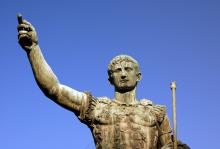
God’s kingdom is a place of unlimited love and unending compassion. It’s a place where everyone is welcomed — especially the marginalized — and nobody is treated like an outcast.

On Oct. 21, that same intentional Berkeley housing encampment — which has peacefully existed in its current location for the last nine months, was served a 72-hour eviction notice by the Bay Area Rapid Transit (BART) police by request from the City of Berkeley. Despite receiving over 3 million dollars in grants to expand housing, the City of Berkeley invests more of its time and resources displacing marginalized communities.
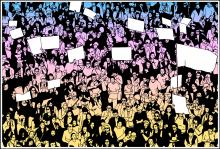
In the wake of executive orders from the Trump administration targeting Muslims, leaders of faith and moral courage gathered to cultivate resistance. In this moment, resistance means providing sanctuary for undocumented citizens, rejecting policies that restrict human flourishing, and calling one another to moral citizenship in the face of immoral and unjust policies. Moral citizens, according to ISAIAH executive director Doran Schrantz, fight “for the moral and political truth that the promise of our democracy is imperiled unless all are human, all are citizens, all are free.”

Would St. Justin Martyr recognize us as Christians? After reading his, “Discourse to the Greeks,” I have my reservations. I doubt he would recognize me.
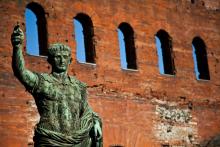
Stop me if you’ve heard this story before. It’s familiar to many. The story features a culture that treats people like commodities, valuing them only insofar as they produce wealth.
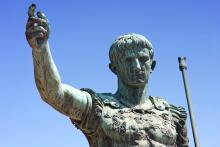
Why would a good and loving God be described in imperial terms? Could even empire play a role in God’s vision? If God in Jesus has created everything for a helpful purpose, perhaps it is only our twisting of God’s good creation that has turned empire into a destructive force.

I need a word of hope.
In verse 1 of chapter 2 of Luke’s gospel we are introduced to a word of hope, a person who in the ancient Roman empire was referred to as “Divine, Son of God, God, God from God, Lord, Redeemer Liberator, and Savior of the World” and his name is…
No. Not Jesus.
Caesar Augustus.
All these terms are first used of Caesar Augustus. We use them in reference to Jesus because the gospel is a counterclaim against every other power. Every Christmas carol is a protest song. That is, every Christmas carol is a protest song if we realize Christmas isn’t about God’s ticket to escape the world and its pain. Christmas instead is the powerful way God shows up "in person" to transform the world and our pain.
Both imperial Rome and the early church claimed that their good news came from Heaven. Both announce a gospel of peace, here on earth. The Roman Empire believed it of Caesar Augustus — the early church believed it only of Jesus the Messiah.
For some, today’s Bible reading with its talk of empires is too political. For others its talk of angels too spiritual. But today’s gospel reading wants us to open our eyes to the empires and open our ears to the angels and their protest songs.
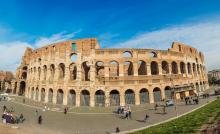
Last week I spent a few days in Rome with, among others, Tony Jones. As someone who hasn’t ever been to Rome, it was particularly helpful for me to have a Christian historian along. It’s easy enough, having seen one amazing display of ruins after another, or cathedral after awesome cathedral, to lose some perspective. So along the way, Tony would stop and point out the historic significance of various landmarks. Then of course, we’d go grab a bourbon and talk.
Both of us, at one point or another in the week, thought of the Monty Python scene from Life of Brian, in which the disgruntled rebels exclaim, “What have the Romans ever done for us?” So of course, some wise guy in the group starts rattling things off, like the aqueducts, roads, education, and so on.
So this led to a minor debate between Tony and me about the benefits of empire. Now, keep in mind that Tony is never one to pass up an opportunity to serve as the antagonist, but his argument as outlined in his blog post cheekily titled “In Praise of Empires,” is that it’s en vogue to trash empire, both present and past.
To put a finer point on it, we chatted about whether Constantine, the Roman emperor responsible for establishing the Nicene Creed, was an ass-hat.
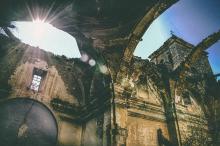
Editor's Note: This post was originally a sermon in our monthly Sojourners chapel.
Friends, grace and peace to you from God our Father and the Lord Jesus Christ.
Around the time I started middle school, my church acquired a series of books called The Left Behind Series. These books chronicle the final days of earth as outlined in the book of Revelation and other apocalyptic biblical texts. I won’t offer any commentary on the theology of these books, or even their literary value, but, as a middle-schooler, they were fairly impressionable.
The entire series begins with a dramatic reinterpretation of the rapture. People are going about their daily lives — driving to work, flying airplanes, making breakfast — when all of a sudden, people who had been there just seconds before are gone. Simply vanished into thin air. Of course, chaos ensues, because who is driving the car? Flying the airplane? Tending the stove? The world they leave behind is shattered, broken, and chaotic! This seminal event — the rapture — shapes the rest of the series as those who have been “left behind” work to win the ultimate prize — a place in heaven where they are no longer left behind.
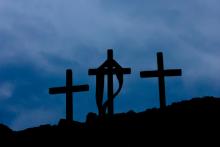
We love a good parade, don’t we? All that celebration, the noise, the crowds, the jubilation … It’s exciting and contagious and a little amazing how a good parade can impact us.
No one understood this like the Romans. These are the people of bread and circuses after all, and no one in the ancient world did empire better than the Romans. The Romans were incredibly good at subduing those people they had conquered. They celebrated the festivals of, raised up leadership from, and generally ingratiated themselves smoothly into the lives of those they ruled. But rule they did.
There certainly were people in Jesus’ time who thought Jesus’ work would be to overthrow the Roman oppressors — establish a political kingdom. Scholars surmise that Judas, the disciple who would betray Jesus to the empire, was one of these. Think of Judas as someone who saw the evils of the Roman Empire and desperately wanted Hebrew rule returned to the region. What we might today call a freedom fighter.
But throughout his ministry, Jesus talked explicitly about the Kingdom of God, the Kingdom of Heaven that is not of this world but is omnipresent, always at hand, constantly among us. And God’s. Period. A very different image of kingship, of dominion.

Night.
The sheep huddled against this big rock.
Jake keeps watch while I wrestle with sleep:
—wool prices down, third year
—owner talks of selling out
—Jake and me—Where do we go?
—Martha’s carrying our fifth child
—rumors that Herod’s at it again,
—this time killing babies.
—Same old story:
the Empire trades in fear.
Where can we run?
Like papa says, “I hate being poor.”

THE CELEBRATED PHILOSOPHER Ludwig Wittgenstein used to speak—disapprovingly—of “language going on holiday.” For example, sportswriters often free language from the drudgery of everyday common usage to let it spread its wings in glorious hyperbole about their favorite teams.
Our biblical heritage gives us examples that are much deeper. When we read the prophets especially, we hear language liberated from the constraints of the everyday to give it a sacred vacation, a true “holy-day,” so that it can return to us reinvigorated. We hear them sending language on an adventure holiday into the realm of God’s future. When they receive the words back, the prophets find themselves recounting visions of a new world that God has in store.
Eschatological language that has been to the future and back exerts a powerful authority over us. In this month’s scriptures we experience that authority again in Isaiah’s unforgettable oracles about the holy mountain on which no one shall ever again hurt or destroy. We shall see, with our mind’s eye, the rising of the sun of righteousness with healing in its wings. We shall hear Jesus speaking of the life waiting for the children of the resurrection. The church’s year ends by inviting us to enter under the authority of the coming kingdom, to become fluent in its strange language of hope, harmony, and ultimate reunion with the Holy One who has reconciled all creation through the cross and resurrection.
WATCHING THE PBS Frontline documentary “Top Secret America” in April reminded me of why I read the gospels. They help me get my head screwed on right—upside-down, that is.
In that show, Pulitzer-Prize-winning reporter Dana Priest investigates the secret history of anti-terrorism in America since 9/11. “Secret” is the key word, since the public has little idea of the injustice, torture, black sites, civilian-killing drone strikes, data-mining, over-surveillance, and general terrorizing that have been done in our name and with our tax money for the past 12 years. The Boston Marathon bombings will only up the ante.
“Empire,” I think as I watch. Our American empire has secret tentacles in every part of our inhabited world. Cofer Black, then head of the CIA’s Counterterrorism Center, announced after we were attacked on 9/11, “The gloves come off!” In other words, we will do whatever it takes to obliterate al Qaeda. “We went in [to Afghanistan] to kick ass. And we did!”
Restraining gloves have apparently stayed off, since little has changed in the Obama administration. No current national security big shot would speak to Frontline. It’s “top secret,” of course, since in public we are supposed to be a democracy and not an empire.
I THINK OF texts from the gospel of Matthew—radical texts penned under the thumb of the Roman Empire. A couple of years ago, I was asked to write “insight essays” for a teacher’s guide in the “Gather ’Round” series of Sunday school lessons for children and youth published by the Brethren Press and MennoMedia. The first seven lessons leading up to Easter were centered on texts from Matthew 18-28. I struggled to find a common thread running through these stories and sayings leading up to the final events in Jesus’ life.
JEREMY SCAHILL SPENT years working out his notions of social justice in homeless shelters and conflict zones and among peace activists. In 2007, Scahill’s award-winning investigative reporting made waves when he published Blackwater: The Rise of the World's Most Powerful Mercenary Army, a comprehensive exposé on the secret role of private military contractors in the United States’ “war on terror,” which prompted several congressional inquiries. Scahill’s newest book, Dirty Wars: The World is a Battlefield, digs into the obscure underbelly of U.S. covert wars.
“In one of my trips to Yemen, I traveled in the south of the country where most of the U.S. drone strikes in Yemen have happened,” Scahill said during a recent visit to Sojourners’ Washington, D.C. office. “I was interviewing a number of tribal leaders. This guy from Shabwa province said to me, ‘[Americans] consider al Qaeda [to be] terrorism. We consider your drones [to be] terrorism.’ I heard that over and over in a variety of countries. ... Many people, in Yemen or in Somalia, would not be predisposed to think of al Qaeda as anything positive. Al Qaeda is a reviled organization in Yemen. ... But there are tribal leaders who are saying, ‘You know, you pushed us into a corner where our people are now sympathetic with al Qaeda.’ After years of traveling in these countries, I really believe that we’re creating more enemies than we’re killing.”
In some respects, drones are simply a new tool of old empire. Scahill’s book title, Dirty Wars (and film of the same name), is partly “a macabre tip-of-the-hat to the dirty wars in Central America, fueled by the United States ... targeting people who are insurgents and claiming they were communists. The new version of this is targeting people who are fighting us and claiming they’re al Qaeda.”

Among my must reads are the Sunday New York Times Book Review and other book reviews I come across in various media outlets. There are too many books being published that I would love to read, but just don’t have the time. So, I rely on reading book reviews as one way of keeping in touch with what’s being written.
Here are my picks in this week’s books of interest:
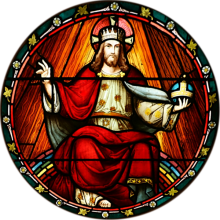
Today is the Feast of Christ the King, the last Sunday in our church year.
I always find it a strange feast to celebrate in a democracy, in which the whole point is that we do not have kings, but shared authority vested in the people and temporarily delegated to elected leaders. What does thinking about Jesus as a King mean to folk like us?
This year it is particularly strange, for, with the exception of the marriage of William and Kate, this has been a bad year for kings. Monarchs, tyrants, plutocrats, and autocrats of every stripe have found themselves under assault from a powerful wave of populism, as the citizens of country after country have risen up to hold their leaders accountable for their stewardship of their nations. Throughout the Middle East and in parts of Europe and the United States, the official narrative of power has been held up and judged against another set of ideas, one that speaks of fairness, liberty, and raising up the poor. Ruler after ruler has heard a cry that translates, roughly: “as you did it to the least of us, so shall it be done to you.”
Christ is a different kind of king, and his authority always calls our leaders to account, whatever the form of our government or our political preferences. Christ embodies a form of leadership that is rarely seen in our world. In the ordinary scope of things, our leaders wear nice suits and inhabit the corridors of power and cut deals with the wealthy and the powerful. Christ, however, threw in his lot entirely with those whom the doors of power shut out. He would talk with anyone, eat with everyone, and, in the end, died among the refuse of his people. He was a leader who led from below.
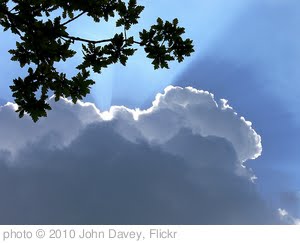 Here's a little round up of links from around the Web you may have missed this week:
Here's a little round up of links from around the Web you may have missed this week:
- Sandwich coasters are fun.
- Guy lets the world use his Starbucks card for free.
- Voters put corn kernels into jars with their favorite Republican presidential candidates.
 With the scandal around Rupert Murdoch growing by the day, a full-fledged boycott of News Corp. has been launched on the internet, according to the Washington Post.
With the scandal around Rupert Murdoch growing by the day, a full-fledged boycott of News Corp. has been launched on the internet, according to the Washington Post.
The website Boycott Murdoch also has Facebook and Twitter pages. While the boycott has received coverage on many mainstream news outlets, it has yet to gain much traction. The Facebook page has less than 700 fans and the Twitter page is approaching only 1,000 followers. To make even a small dent in Murdoch's bottom line, the boycott will need to metastasize, and quickly.
Smack dab in the middle of the Lord’s Prayer, obscured by old translations and otherworldly assumptions, is a radical cry for Jubilee justice